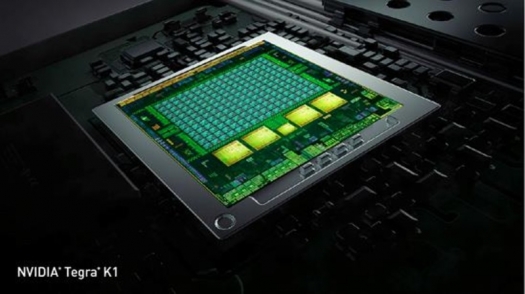GE and NVIDIA to work on embedded computing chip

GE Intelligent Platforms announced at NVIDIA's GPU Technology Conference (GTC) that it has signed an agreement with NVIDIA to bring products based on the NVIDIA Tegra K1 mobile processor to the embedded computing market.
GE Intelligent Platforms will develop and manufacture rugged high performance embedded computing (HPEC) and graphics solutions based on the Tegra K1 chip. GE will be NVIDIA's preferred provider of the new technology to serve applications in harsh environments, most notably to customers in the military/aerospace market.
Built on the same NVIDIA Kepler graphics architecture that drives the world's most extreme gaming PCs and the fastest supercomputer in the United States, the Tegra K1 brings console-class gaming graphics and performance to mobile devices, according to NVIDIA.
The Tegra K1 features 192 fully programmable GPU computing cores - capable of executing CUDA algorithms - in addition to four ARM Cortex-A15 CPU cores with a fifth battery-saver core, to deliver record levels of performance and battery life.
Featuring substantial reductions in heat dissipation and weight, the Tegra K1 makes GPGPU technology available to classes of application for which it was not previously feasible - notably in the highly SWaP (size, weight and power) constrained environments that increasingly characterise military/aerospace deployments such as man-wearable and portable systems.
"We are working with customers for whom GPU technology is an ideal fit for their sophisticated but SWaP-constrained applications - but who have been precluded from using it because of its power consumption and heat dissipation," says Simon Collins, Product Manager, GE Intelligent Platforms. "Tegra K1 changes all that, and will allow those customers to implement the optimum solution. Tegra K1 allows GE to uniquely address a much broader spectrum of potential applications."
"The Tegra K1 also enhances GE's HPEC capability," continues Collins. "Previously, our HPEC offering ranged in power consumption from around 2,000 Watts at the high end to 100 Watts at the entry level. In future, we will be able to offer HPEC solutions that consume as little as 10 Watts, allowing CUDA algorithms to be easily ported across an even broader range of platforms."
"Tegra K1 processors deliver exceptional graphics, powerful computing, and truly unique features in a power-efficient package optimised for mobility," adds Jesse Clayton, Product Manager for Jetson Tegra K1 at NVIDIA. "With GE Intelligent Platforms, we're bringing these capabilities to a broader range of the world's most sophisticated, most demanding customer applications for which the highest performance and mission-critical reliability are absolute prerequisites."

































